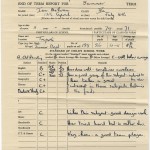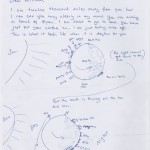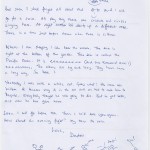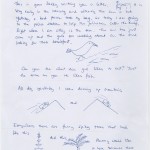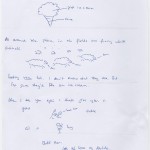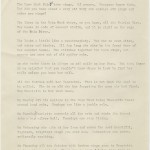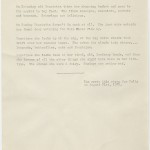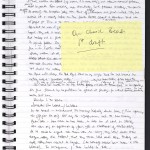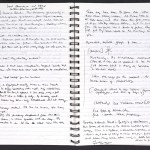The Harry Ransom Center has acquired the archive of writer Ian McEwan (b. 1948), one of the most distinguished novelists of his generation. The archive documents McEwan’s career and includes early material from his childhood and adolescence, as well as his earliest abandoned stories dating from the late-1960s and early 1970s. The archive includes drafts of all of McEwan’s later published works including his critically acclaimed novels Amsterdam and Atonement up through On Chesil Beach and Solar.
McEwan composed his novels partly in longhand, typically in uniform green, spiral-bound notebooks, and party on the computer. After an initial draft, he would transfer the entire text to a computer, printing out multiple drafts, which he would revise further by hand. McEwan’s Booker Prize-winning novel Amsterdam is represented in the archive in its earliest form as a handwritten notebook, followed by two further revised drafts. McEwan often notes details of composition in these drafts, including their completion or revision dates.
“The writer tends to forget rapidly the routes he or she discarded along the way,” McEwan said, commenting on his manuscripts. “Sometimes the path towards a finished novel takes surprising twists. It’s rarely an even development. For example, my novel Atonement started out as a science fiction story set two or three centuries into the future.”
McEwan’s archive will reside at the Ransom Center alongside the archives of many of his peers and contemporaries, including his longtime friend Julian Barnes, as well as J. M. Coetzee, Doris Lessing, Jayne Anne Phillips, and Tom Stoppard. The McEwan materials will be accessible once processed and cataloged.
McEwan will visit Austin and speak at the university on Sept. 10.
Please click on thumbnails below to view larger images.



